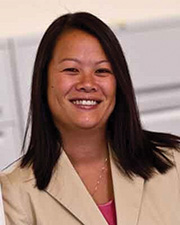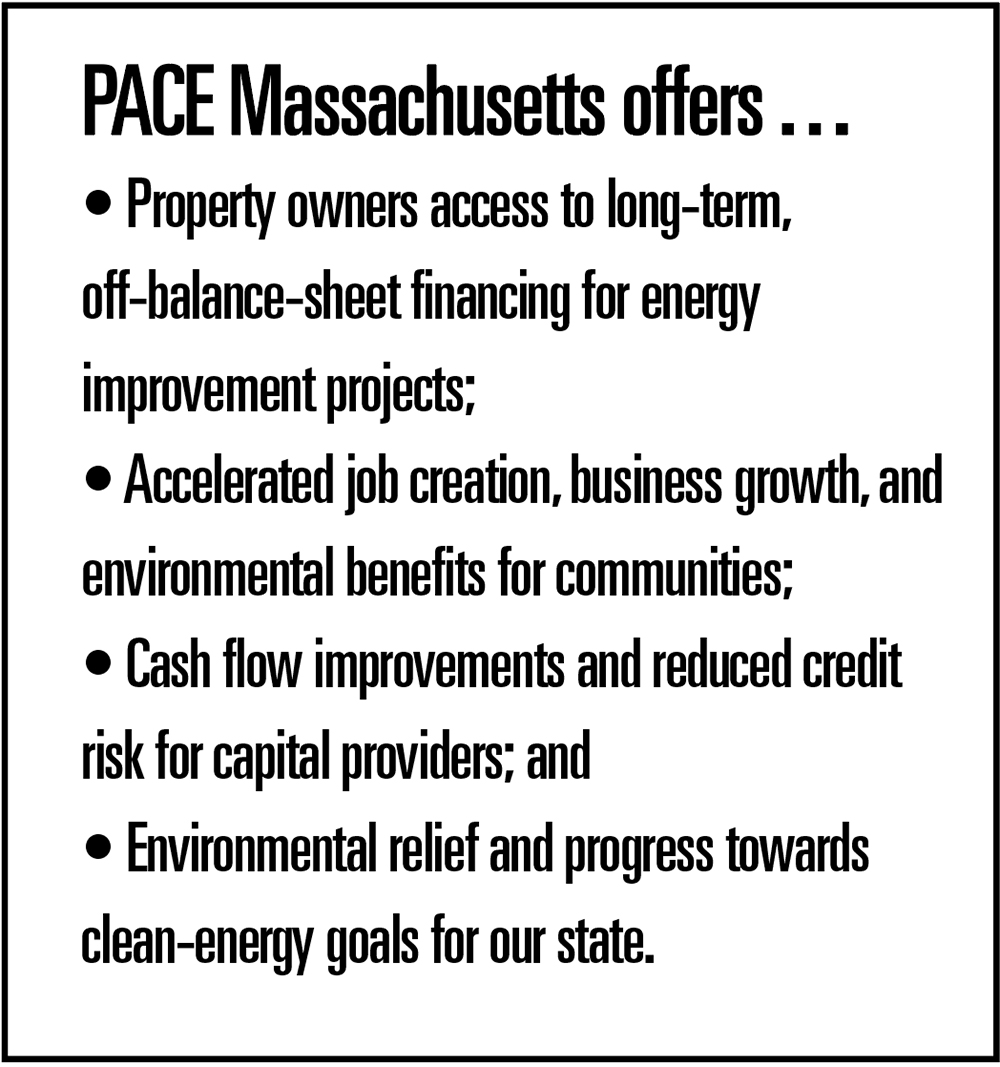Setting the pace in Massachusetts - by Wendy O’Malley

MassDevelopment
Commercial property owners exploring energy improvements to their buildings–and how to pay for them–can look no further than MassDevelopment’s new Property Assessed Clean Energy (PACE) Massachusetts program. Launched in 2020, PACE Massachusetts is a new long-term option for financing energy improvements to commercial and industrial buildings, multifamily properties with five-plus units, and buildings owned by nonprofits. The program enables commercial property owners to fund energy efficiency and renewable energy projects by agreeing to a betterment assessment on their property, which repays the financing.
How it works: Property owners apply to PACE by detailing the type of energy improvement project they want to undertake – and demonstrating that the energy savings from the project will be greater than the cost (a requirement of the program). Property owners will work with a capital provider, such as a bank or a PACE lender, to fund the project and to finalize their application package. If a project is approved, MassDevelopment will work with the host community to bill and collect the assessment, which is then sent to the capital provider as repayment for the financing.
Eligible projects: PACE Massachusetts can be used to finance boilers and furnaces, HVAC systems, lighting upgrades, solar panels, insulation, air sealing, geothermal, solar hot water, energy management systems, energy recovery, and redistribution systems.
Advantageous, long-term financing: Offering more flexibility than a direct loan, PACE Massachusetts allows property owners to undertake comprehensive energy upgrades without adding new debt to their balance sheet and through longer financing terms of up to 20 years. This means property owners can use the annual savings from an energy improvement project to repay the betterment over time. Additionally, at property sale, the assessment and lien stays with the property and is transferred to future property owners, who then enjoy the annual savings.
Example 1: PACE Massachusetts for commercial office buildings
A 100,000 s/f commercial high-rise office building with outdated building systems and overdue capital expenditures needs modernizing in order to attract and retain tenants. Financing through PACE Massachusetts can be used to replace more costly mezzanine or equity financing in the project’s capital stack. With a 20-year term – and no upfront costs – much-needed upgrades such as new chillers, LED lighting, high-efficiency HVAC systems, and controls and insulation would pay for themselves over time through the savings from lower annual energy costs, add to the building’s value, and improve comfort for tenants.
Example 2: PACE Massachusetts for multifamily housing
An apartment building with 20 rental units has outdated lighting, heating, and cooling systems and is in need of repairs. PACE Massachusetts can allow the property owner to secure financing with competitive interest rates and a 20-year term to install new solar panels along with a new roof, high-efficiency boiler, and LED lighting. The energy improvements and tax credits are projected to save this owner over 10% annually in energy costs, which would be used to repay the PACE Massachusetts financing via the annual betterment.
Example 3: PACE Massachusetts for manufacturers
A manufacturing company is looking to refinance a recently completed renewable energy project. The owner can use PACE Massachusetts to replace funds that originally constructed the project, extending the term from seven to 20 years. The project moved the company closer to meeting its zero-energy goal, and refinancing through PACE Massachusetts would provide positive cash flow for the owner from the electricity savings realized.
Clean-energy advocates have long recognized the benefits to the environment – and their pocketbooks – that energy efficiency and renewable energy improvements provide. PACE Massachusetts now offers a new pathway for pursuing these projects, with advantages for property owners, their communities, and Massachusetts.
Forty-one municipalities have already opted in to PACE Massachusetts by a vote of their city or town council or board of selectmen. From big cities like Boston and Springfield to smaller towns like Bellingham and Orange, property owners can take advantage of the program today.
Wendy O’Malley is vice president, PACE program manager at MassDevelopment, Boston.
Newmark negotiates sale of 10 Liberty Sq. and 12 Post Office Sq.


Four tips for a smooth 1031 Exchange - by Bill Lopriore

Five ways to ruin a Section 1031 Like-Kind Exchange - by Bill Lopriore

How COVID-19 has impacted office leasing - by Noble Allen and John Sokul








